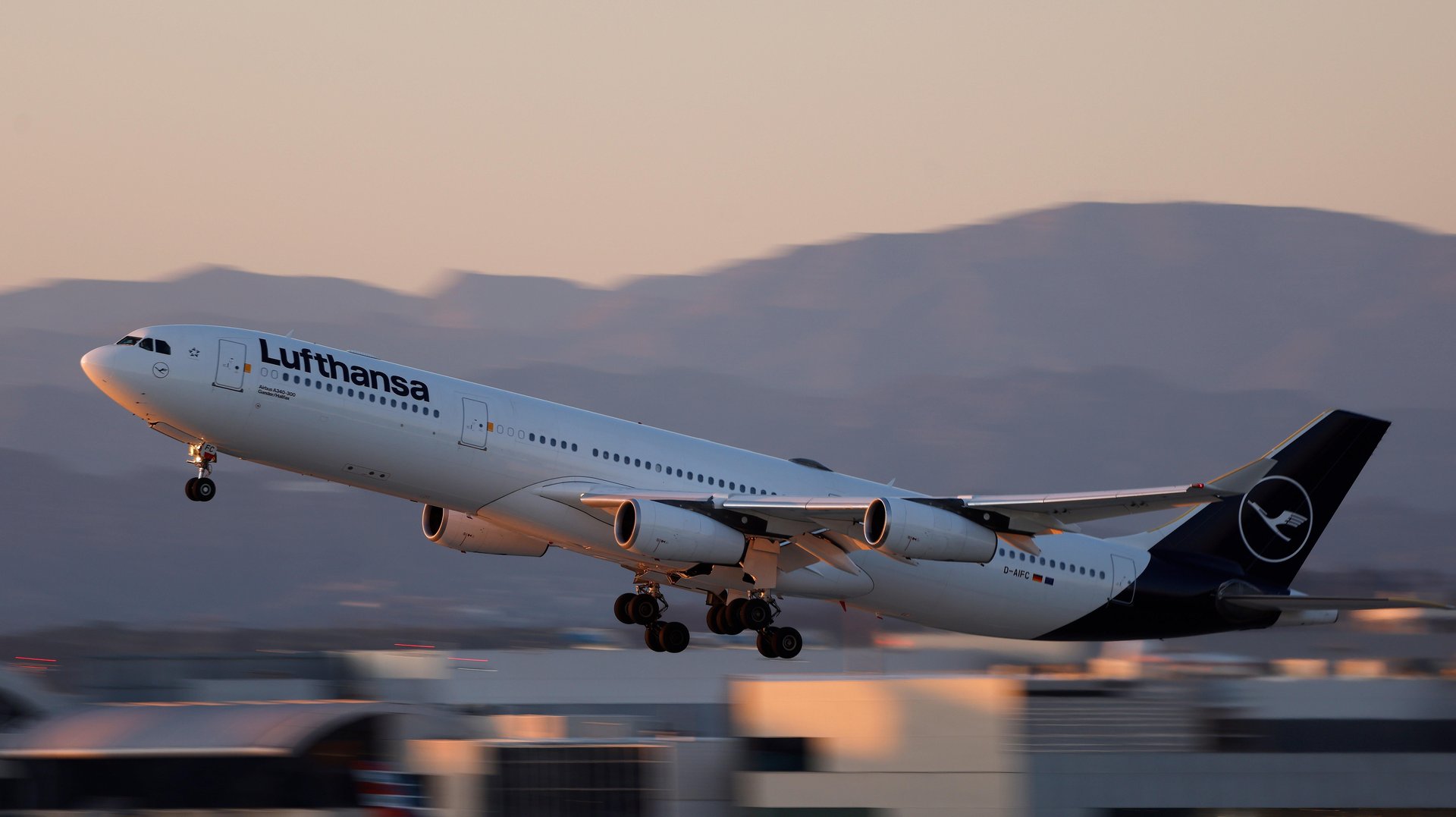Lufthansa is making flyers pay for its climate change costs
The airline's "environmental cost surcharge" affects flights starting in 2025

As climate change increases pressure on the airline industry to reduce greenhouse gas emissions, some of the costs of doing so are being passed on to consumers. German airline Lufthansa announced Tuesday that it would begin charging an “environmental cost surcharge” to help cover the cost of complying with European clean-air regulations.
Suggested Reading
“The Lufthansa Group invests billions in new technologies every year and works together with partners on innovations that help to make flying more sustainable step by step and drive the scaling of key technologies beyond the Lufthansa Group,” the airline said in a statement accompanying the announcement. “In addition, the Lufthansa Group has actively supported global climate and weather research for many years. However, the airline group will not be able to bear the successively increasing additional costs resulting from regulatory requirements in the coming years on its own.”
Related Content
The surcharge will be used to help pay for cleaner-burning jet fuel and participation in carbon-offset schemes. Tickets will go up in price by as much as €72 ($77) for flights departing the European Union, the United Kingdom, Norway, and Switzerland beginning Jan. 1, 2025.
Earlier this month, International Air Transport Association head Willie Walsh told attendees of the group’s annual meeting that complying with climate change regulations will make flying more expensive as governments seek to reduce the industry’s contribution to increasing global temperatures. Aviation is responsible for 1 in every 30 to 50 tons of carbon released into the atmosphere every year.
“I’m sorry to say but the transition to net zero will require customers to pay,” he said, adding that “the costs can’t be borne by the industry given the wafer thin margins we have.”
